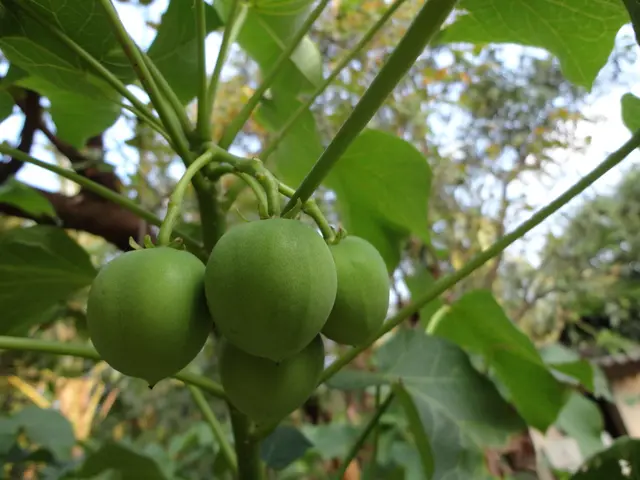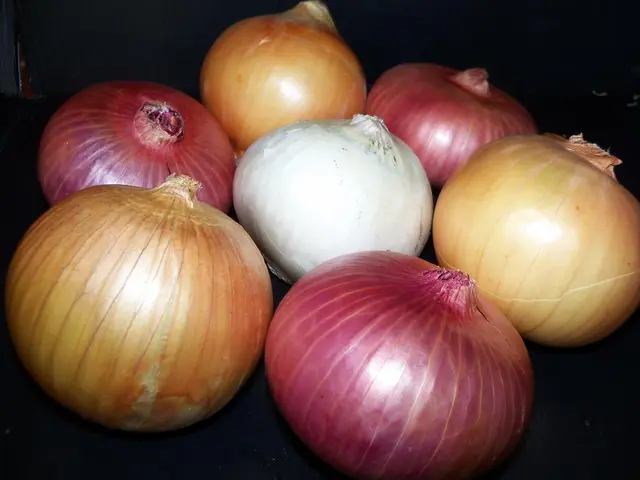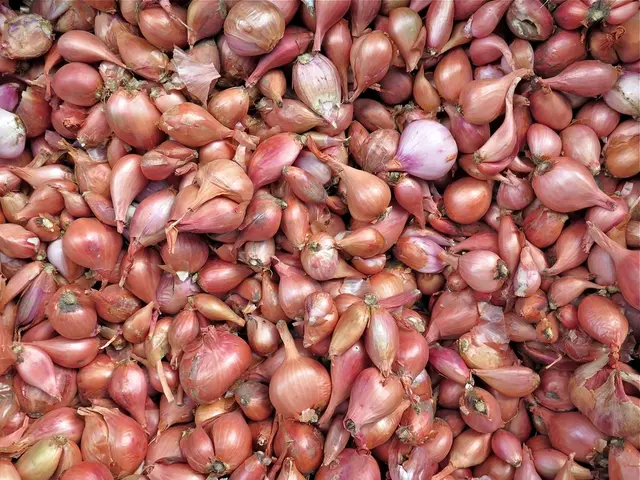Transform Your Garden into a Blooming Paradise (Rather Than Merely Enduring) This Spring
Turn Your Space into a Verdant Oasis: Tips for Beginner Gardeners
Gardening: it's not just about growing plants, but also learning from mistakes and enjoying the process. Here's how to make your garden thrive, not just survive, as a beginner. We've got tips from Angela Judd, the brains behind Growing in the Garden, and Vandana Koranne, the founder of Humans Who Grow Food.
- Select What to Plant: Balance personal preferences with seasonal availability. For instance, warm-season crops like tomatoes, peppers, beans, and squash grow best during summer. Consult your local community garden for advice on what to plant.
- Get Your Hands Dirty Regularly: Even the busiest gardener needs to spend time in their garden every day. Regular visits let you catch problems early, ensuring they're easy to handle. Take note of issues like discolored leaves or unwanted pests.
- Harvest Frequently: Don't let the beauty of your garden delay you from harvesting. Picking produce when it's young and tender results in the best flavor. Regular harvesting also helps stimulate new growth and keeps pests at bay.
- Pay Attention to the Soil: Set up a watering schedule, but don't stick to it blindly. Check the soil before watering to ensure it needs moisture. Water in the morning to give plants plenty of time to absorb water before the sun evaporates it. Use mulch or hay to conserve moisture and prevent the soil from drying out too quickly.
- Invite Pollinators: Don't just focus on veggies and herbs. Incorporate pollinator-friendly flowers and other beneficial plants to attract bees, butterflies, and other helpful critters. These natural pest controllers and pollinators will boost your plant production.
Whether You're Starting Fresh or Trying to Fix Errors:
- Strategic Planning: Start with a small plot or containers. Focus on high-yield crops like salad greens, herbs, and bush beans. Use companion planting where compatible plants benefit each other in terms of growth, pest control, and pollination.
- Regular Journaling: Keep a record of your planting dates, successful varieties, and pest issues. Seasonal notes help refine future plans.
- Sustainable Practices: Attract pollinators by planting nectar-rich flowers near vegetables. Use drip irrigation or soaker hoses to conserve water and prevent fungal issues. Opt for organic practices to improve water retention and reduce pests long-term.
Gardening isn't about perfecting everything at once. It's about starting, learning, and enjoying the journey. With these tips, you'll be on your way to a productive and beautiful garden.
- For beginners embarking on a gardening journey, learning from mistakes and appreciating the process is crucial, transforming spaces into verdant oases.
- Whether you're starting fresh or attempting to correct errors, strategic planning and sustainable practices can contribute to a thriving garden.
- A small plot or containers are suitable for initial gardening endeavors, focusing on high-yield crops and utilizing companion planting techniques.
- Regular journaling is essential, as it helps document planting dates, successful varieties, and pest issues, providing notes for future improvements.
- To maintain a productive and beautiful garden, attract pollinators by planting nectar-rich flowers and using sustainable practices like drip irrigation and organic methods.
- Gardening, upon embracing it as a lifestyle, can serve as a home-and-garden hideaway, offering peace and enjoying the rewards of nurturing life outdoors.








